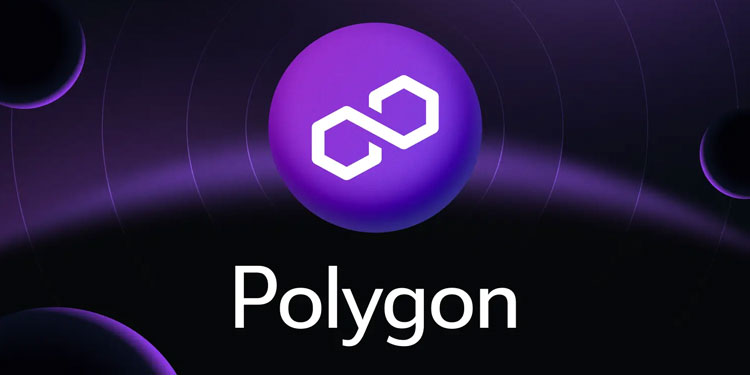
Polygon has introduced a proprietary AI assistant powered by ChatGPT. The purpose of the Polygon Copilot Assistant is to function as a navigational aid for users within the ecosystem. The automaton has been trained using a corpus comprising the documentation from Polygon and resources related to Web 3.0. Consequently, the copilot has the capability to provide vital analysis, perspectives, and suggestions concerning various elements of the ecosystem. Furthermore, the system has been designed with the capability to provide guidance tailored to the user’s proficiency level, whether they are a beginner, intermediate, or advanced user.
Polygon has released a statement regarding the launch of its new assistant, Polygon Copilot. This AI-powered interface is designed to provide users with a range of interactions accessible through voice commands. Whether you are a professional builder, an avid enthusiast, or simply a curious user, Polygon Copilot offers a world of possibilities. The chatbot utilizes OpenAI’s highly advanced GPT-4 model to offer extensive answers to inquiries related to Non-Fungible Tokens (NFTs), Decentralized Applications (DApps), gaming, and Decentralized Finance (DeFi).
This feature facilitates the exploration of supplementary capabilities within the Polygon platform, enabling users to extract enhanced benefits from its use. Polygon Copilot has the capability to store the conversation history, which allows users to revisit previous responses, much like ChatGPT. To achieve this, it is necessary for users to link their MetaMask account with Polygon Copilot.
“Where can I find an AI-powered guide to Polygon and web3?” … 📡
Introducing Polygon Copilot, powered by @LayerEhq and @OpenAI GPT-4. AKA, your friendly AI guide trained on all Polygon docs and the web3 universe.
More: https://t.co/GZ1qBx93nq pic.twitter.com/Nu7q13fcIJ
— Polygon (Labs) (@0xPolygonLabs) June 21, 2023
Furthermore, the company has expressed its commitment to ongoing improvement, stating that “Polygon Copilot” remains dedicated to this goal. In order to guarantee transparency and accuracy, the organization reveals the sources of the information. This functionality empowers users to authenticate the provided information and delve deeper into the subject matter.
This statement raises the bar for users who have experienced ChatGPT to be the opposite. According to reports, ChatGPT produces information that is deceitful and misleading. Furthermore, the platform does not consistently provide citations for the origins of its information. Ensuring the fulfillment of this commitment will be of utmost importance for the optimal functioning of the assistant.
Notwithstanding the bold assertion, the Polygon Copilot software also features the customary disclaimer commonly observed in other Generative AI programs: “Polygon Copilot employs nascent AI technology that may yield imprecise data.”
The responses of Polygon Copilot are limited in order to minimize spam and computational load. Consequently, the organization has enabled its users to enhance their credit balance by engaging in social endeavors such as offering feedback or aiding in the enhancement of the product. The objective of Polygon is to create a multi-chain blockchain infrastructure that is interoperable with Ethereum. The purpose of the platform is to enable the facilitation of connectivity and expansion of blockchain networks. For example, in the event that a user generates content and subsequently mints it on the Ethereum network, Polygon can be utilized to incorporate financial worth to it. Furthermore, the distribution of data by Polygon will be used for application on the Ethereum blockchain.
“Where can I find an AI-powered guide to Polygon and web3?” … 📡
Introducing Polygon Copilot, powered by @LayerEhq and @OpenAI GPT-4. AKA, your friendly AI guide trained on all Polygon docs and the web3 universe.
More: https://t.co/GZ1qBx93nq pic.twitter.com/Nu7q13fcIJ
— Polygon (Labs) (@0xPolygonLabs) June 21, 2023
Polygon has proposed the conversion of its Proof-of-Stake (PoS) sidechain to ‘zkEVM Validium’, which is a Layer 2 network secured by Ethereum. This proposal has been recently published by Polygon. This is a pioneering decentralized L2 protocol that is safeguarded by zero-knowledge (ZK) proofs. The zkEVM is a type of virtual machine that leverages zero-knowledge proofs to authenticate data while keeping the content and characteristics of the data concealed. The protocol is designed to be resistant to censorship, and it functions by replicating the transaction execution environment of the Ethereum mainnet.
Users are able to command Polygon Copilot to produce zkEVM and proof-of-stake (POS)-centered NFTs through the assistant’s messaging interface, despite the novelty of these advancements. This signifies the currency of the assistant, considering that the protocol is still pending approval from the community. Polygon Copilot has included Polygon Labs in its roster of Web3 enterprises that have integrated AI functionalities into their systems. Prior to the launch of Polygon, Ava had introduced AvaGPT, a similar assistant that was developed to assist users in traversing the Avalanche and Core ecosystems.